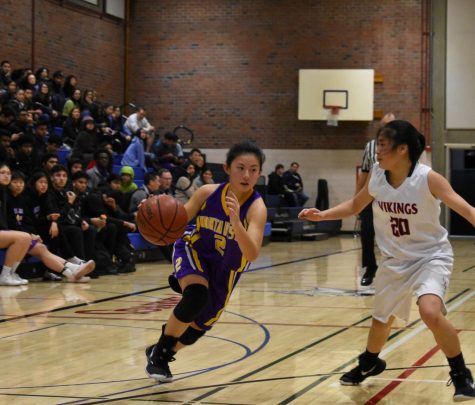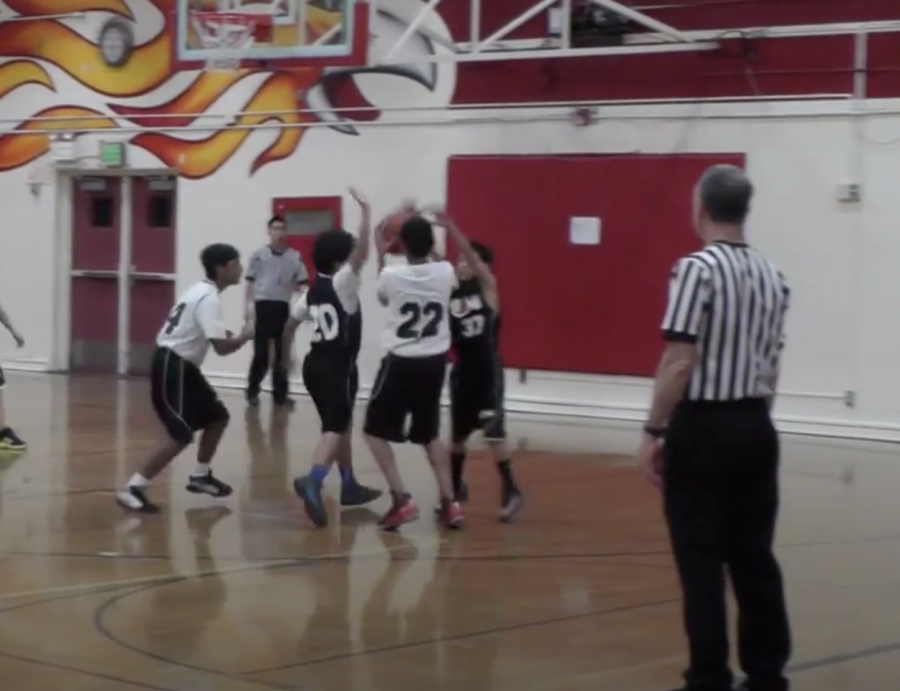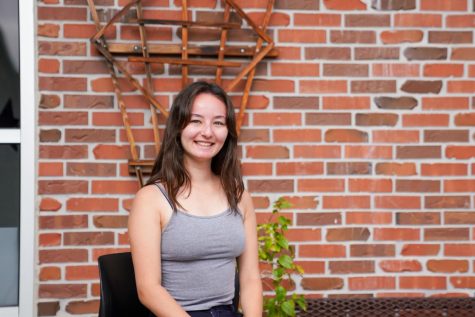COVID-19’s impact on Cupertino Hoops
Exploring players’ and referees’ reactions to the potential canceling of the winter basketball season
Van Buren referees at a Cupertino Hoops boys basketball game on Jan. 19, 2013.
October 26, 2020
With the start of the eighth month of COVID-19 restrictions, local basketball league Cupertino Hoops prepares for the possibility of their winter season being canceled. Cupertino Hoops’ referees are currently bracing themselves for the financial and emotional impacts of a likely season cancellation.
Senior Kelli Kosakura, a Cupertino Hoops referee who has been playing basketball for 12 years, does not believe that a season cancellation will impact her significantly. She typically only referees at Cupertino Hoops for five to seven hours per season. However, Kosakura still notes that not being able to referee will be a loss.
“[The thing that I miss most about refereeing] will probably just be seeing the little kids,” Kosakura said. “I remember growing up [with] Cupertino Hoops and seeing the high school refs. I was like, ‘Oh, I want to do that one day’ and give back to my community.’”
A fellow Cupertino Hoops referee, math teacher Martin Jennings, believes that teenage referees are well-paid and frequently refereeing for Cupertino Hoops could be considered a good job, especially for teenagers.
“For teenagers, it’s more than minimum wage —they get to run around instead of having to flip greasy burgers,” Jennings said. “For older folks like myself that are more experienced, they pay us a little bit more.”
Similarly to Kosakura, Jennings, who has been playing basketball for 54 years and refereeing since he was in college, agrees that it has always been about giving back to the community. According to him, the money he earns is merely an added benefit.
“I like being able to contribute to the community,” Jennings said. “Cupertino Hoops is a local organization and helps people in Cupertino learn the skills needed to play basketball. It helps them grow in their appreciation for the game. I wanted to support that [and] as far as the motions go, I’m glad to be able to contribute. When I walk out of the gym each time, I’m smiling.”
However, Cupertino Hoops referee coordinator Donald Van Buren, who is in charge of hiring referees and organizing the time slots in which they work, notices that out of the 40 participating referees in last year’s season, few chose to volunteer instead of being paid.
“I think that [financial compensation] is a significant part of the motivation [for most referees],” Van Buren said. “Maybe it’s four or five [referees] that aren’t compensated, but most of them are compensated. [Only]some of them are doing it for community service.”
Kosakura and Jennings agree that although they referee because of the emotional satisfaction they get from helping their community, the possibility of not being able to referee will not have a huge impact on their lives. Former Cupertino Hoops player and 8th grader Samantha Tong, however, believes that if the season is cancelled, it will have a substantial emotional impact on the players who lose their season — the experience will not be replicable over Zoom or other online platforms.
“[My favorite thing about Cupertino Hoops] was probably kind of the family environment, how even though our team was together for such a short time, It was really welcoming and everyone was open to all skill levels,” Tong said. “I think [that if I still played there, it would have affected me emotionally] because even if we were to use zoom calls, it wouldn’t be the same, and it definitely wouldn’t be the same experience as if [it was] in person.”





























